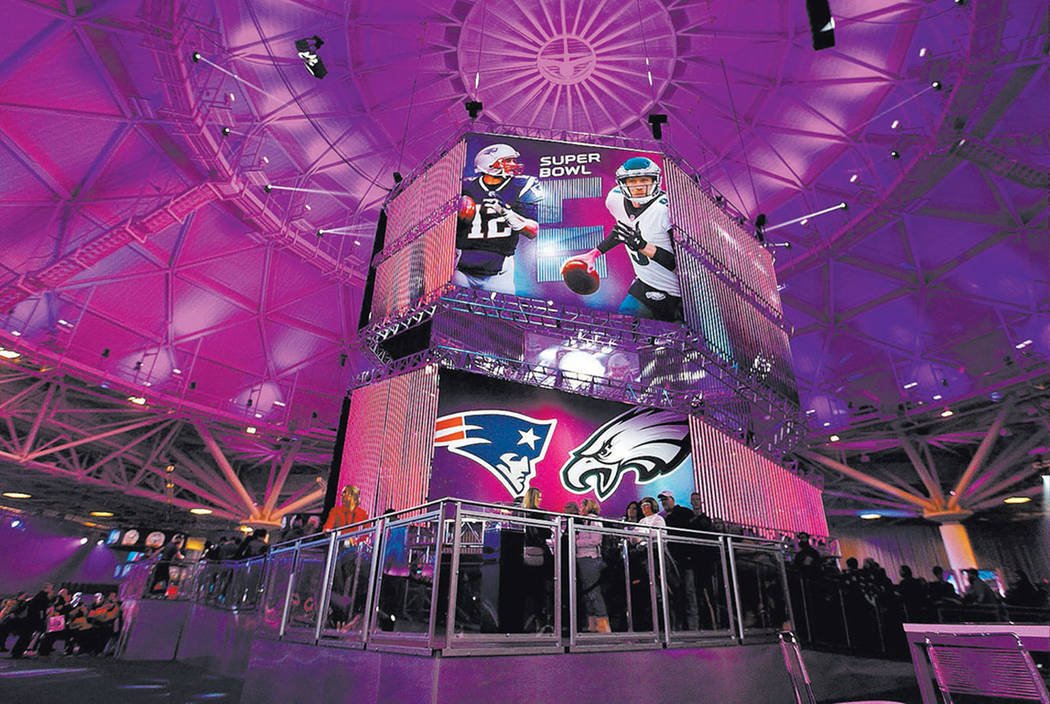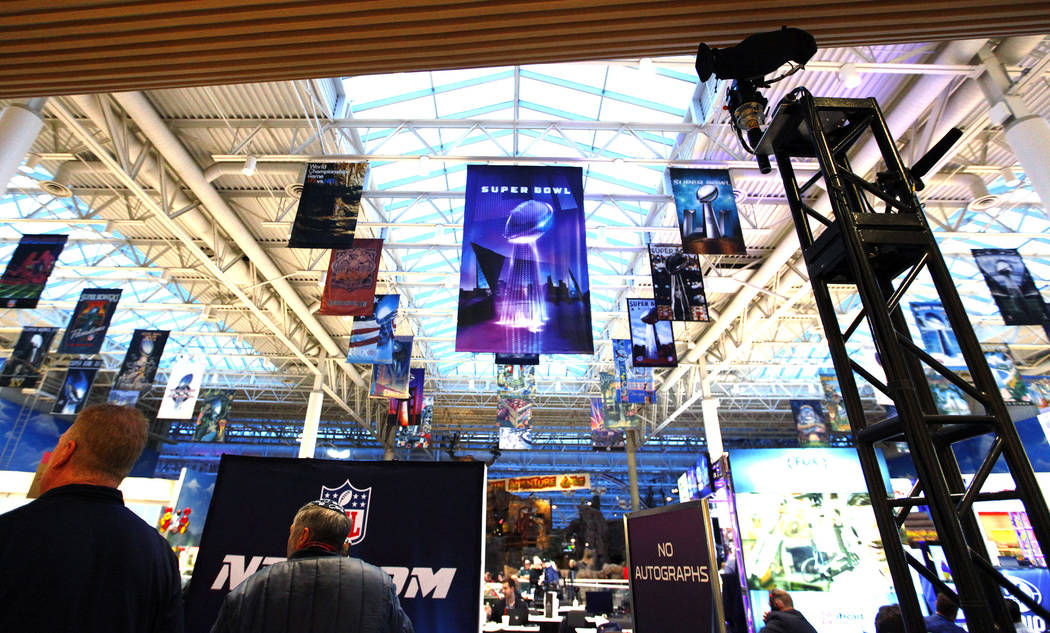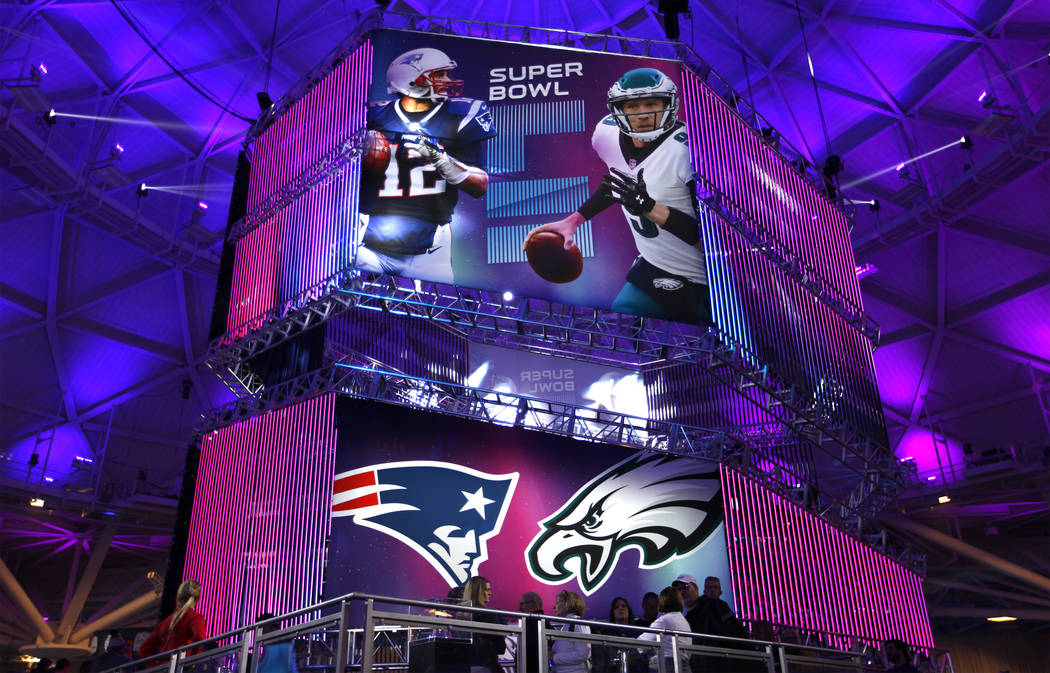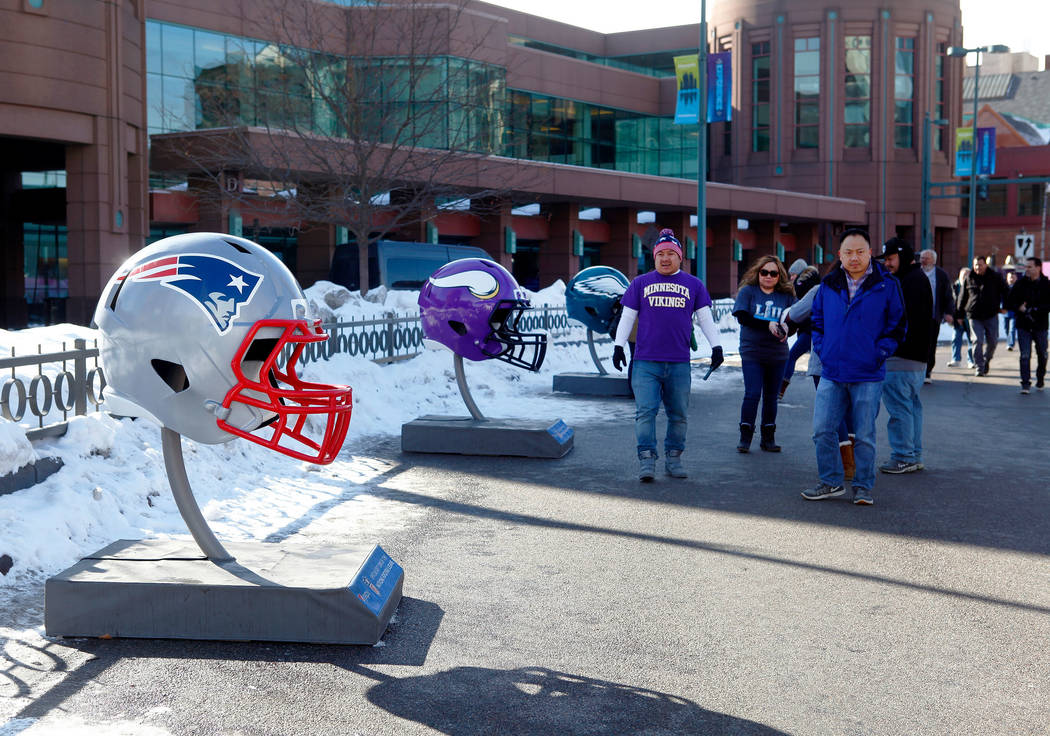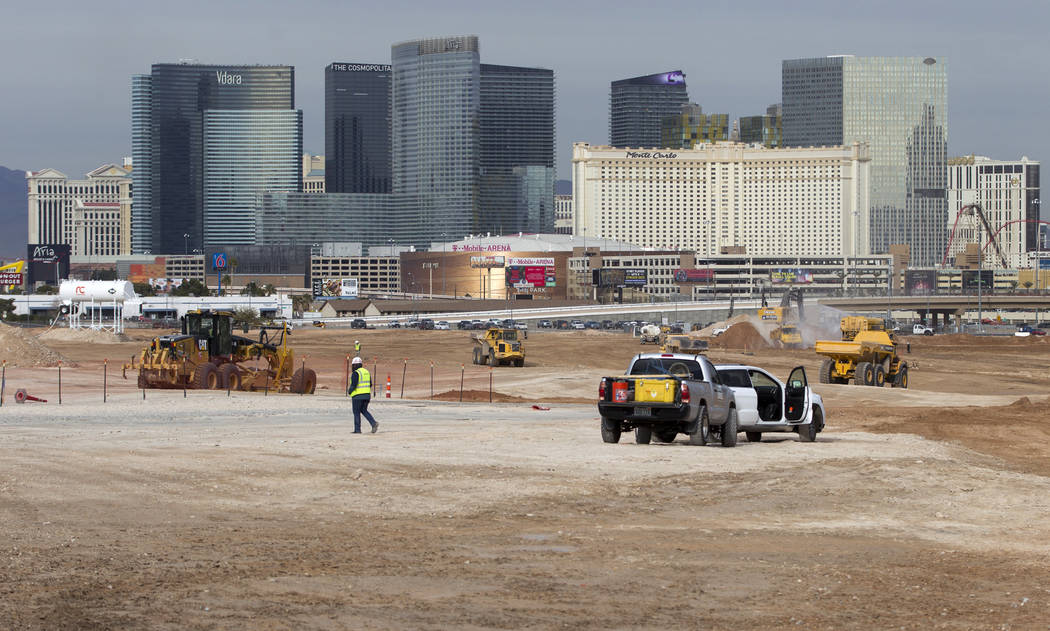Las Vegas, Raiders aim to host Super Bowl as early as 2023
Las Vegas and its $1.9 billion stadium project won’t be forgotten when nine NFL owners and team presidents, together wielding influence over an adjusted Super Bowl bid-selection process, meet in the coming months.
One of the nine can assure it.
Raiders owner Mark Davis serves on the Super Bowl and Major Events Advisory Committee, positioning him to have an active role in where Super Bowl LVII will be located on Feb. 5, 2023. There is no guarantee the game is coming to Las Vegas then. A combination of recent history and comments from an NFL executive, however, indicate the opportunity should arrive in the next eight years.
Peter O’Reilly, the league’s senior vice president of events, identified a four-year window, beginning with the 2022 season, in which it is “realistic” for the championship game to visit the multi-use Las Vegas stadium. The site is scheduled to open as the Raiders’ home in 2020.
Las Vegas, upon hosting the game, would be the latest NFL city to which league owners have awarded a Super Bowl following a stadium construction. U.S. Bank Stadium opened in 2016 in downtown Minneapolis. The New England Patriots were defeated by the Philadelphia Eagles there this past Sunday, 41-33.
“When you think Las Vegas, clearly a great entertainment capital, the Raiders stadium,” O’Reilly said. “That said, there are a number of other cities who have been traditional hosts who haven’t hosted for a while. So, where Las Vegas sits in that next cycle of (Super Bowls) 57 to 60 is still to be determined. … Assuming everything moves forward on course, that’s a window that is realistic. … From a hotel and entertainment standpoint and what will be a tremendous venue when it’s built, (Las Vegas) is a viable Super Bowl host for sure.”
Bids to the next four Super Bowls all are finalized: Atlanta on Feb. 3, 2019; Miami on Feb. 2, 2020; Tampa on Feb. 7, 2021; and Los Angeles on Feb. 6, 2022. Those all were announced in May 2016 at the league’s owners meetings. Three of those four host stadiums were undergoing construction (Atlanta, Los Angeles) or renovation (Miami).
Las Vegas enters the mix with traditional host cities such as New Orleans. The latter has not hosted the game since Feb. 3, 2013. The Dallas Cowboys’ home venue, AT&T Stadium in Arlington, Texas, has hosted one Super Bowl since its opening on Feb. 6, 2011. Perhaps it, too, is due.
Many cities report benefits from hosting a Super Bowl.
Members of the Minnesota Super Bowl Host Committee, for example, said that Sunday’s game and the days of festivities surrounding it represent a chance to showcase prideful aspects of their region to more than 5,000 media members and 1 million visitors. The underlying trend behind the messaging they chose is to highlight attributes of Minnesota unrelated to cold weather.
“The NFL gives you a wonderful platform to talk about your city, or state in our case,” said Maureen Bausch, executive board member of the host committee. “We started very early. We talked to the business committee because we are a privately funded Super Bowl. We said, ‘What can we do with this platform that helps you achieve your goals?’ If I was Las Vegas, I would figure out what you want people to know about Las Vegas that they don’t already know, or amp up what they already know. And then put together a marketing strategy that utilizes the platform the NFL gives you.
“Make the game work for you because it does. It really does,” Bausch said.


